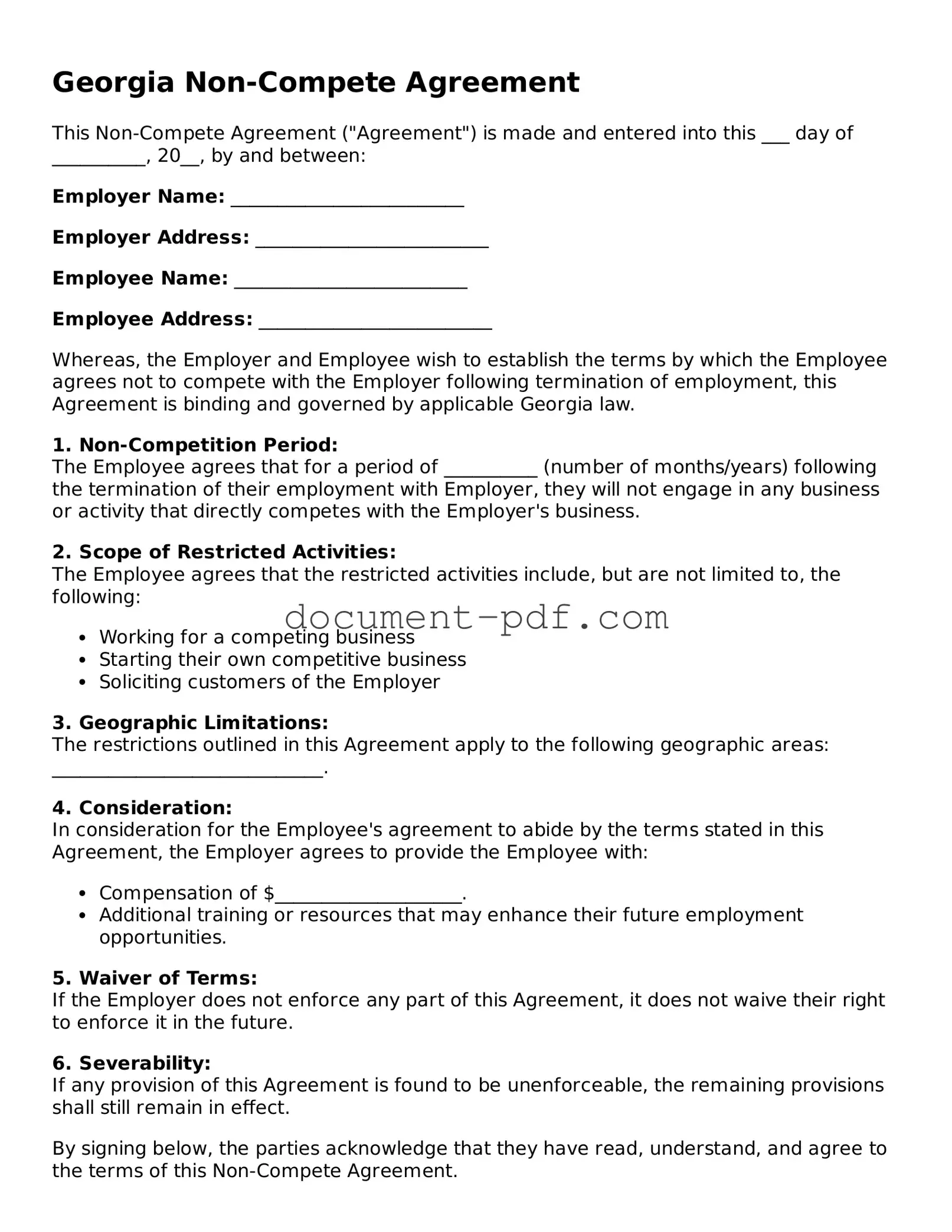Attorney-Verified Georgia Non-compete Agreement Template
A Georgia Non-compete Agreement form is a legal document that restricts an employee's ability to work for competitors or start a similar business within a specified timeframe and geographic area after leaving a job. This agreement aims to protect an employer's business interests and confidential information. To ensure compliance with Georgia law, it is essential to fill out the form accurately.
For assistance in completing the Georgia Non-compete Agreement form, click the button below.
Access Non-compete Agreement Editor Here

Attorney-Verified Georgia Non-compete Agreement Template
Access Non-compete Agreement Editor Here
Finish the form without slowing down
Edit your Non-compete Agreement online and download the finished file.
Access Non-compete Agreement Editor Here
or
Click for PDF Form
